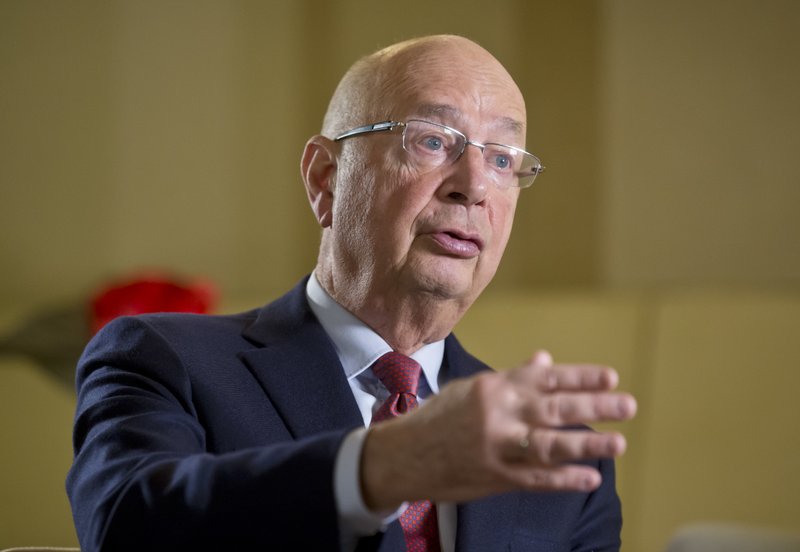DAVOS, Switzerland -- At the Davos economic conference, "it's important to listen to the populists," the founder of the annual gathering of economic leaders said, adding that he hopes to have U.S. President-elect Donald Trump "expressing his ideas" at the Swiss forum one day.
Critics often accuse the yearly World Economic Forum in the Swiss Alps of being a snow-covered playground for well-heeled business and political elites. But founder Klaus Schwab said this year's event, which opens today before a public start Tuesday, is reaching out to populist politicians who have ridden a wave of discontent among the masses.
"It's important to listen to the populists, and actually we have several sessions where we deal with these issues, and we have representatives of populist parties here with us," Schwab said. "We have to take [populism] seriously."
For a forum that strives to take the pulse of the world each year and produce "a real hub of a global discussion," Schwab said "it would be soundly unrealistic and far from realities if we did not integrate the concerns of populists very much into our own deliberation."
For the 47th Davos conference, a record turnout of about 3,000 people will gather around the theme of "Responsive and Responsible Leadership," alluding to the challenge of wise decision-making during a time of populist fervor.
Chinese President Xi Jinping, the first Chinese head of state ever to attend the forum, is among 46 heads of state expected to be on hand. Xi's visit to Davos during an official visit to Switzerland is important, Schwab said, because it shows how the world is moving from a "unipolar to a multipolar world."
As for the United States, the Trump administration will be represented by adviser Anthony Scaramucci, a financier who has attended Davos in the past. Schwab said World Economic Forum organizers knew Trump wouldn't attend this year because his Friday inauguration is on the conference's last day.
Trump has never attended the forum, and Schwab said he is "looking forward to having him here, and having him expressing his ideas. I hope he will join us. I cannot predict that; it depends very much on the future of the politics of the U.S. administration."
At the Swiss ski resort itself, snow blowers were out, setup crews were drilling their last rivets and audiovisual technicians were putting the final touches on big screens set to welcome celebrities such as Matt Damon, will.i.am and Forest Whitaker. U.S. Vice President Joe Biden and Secretary of State John Kerry will also be attending the forum at the nearly mile-high Alpine village.
Davos has become one of the most potent symbols of a growing disparity between the haves and the have-nots since the global financial crisis of 2008.
Trump's election in November, the United Kingdom's June vote to leave the European Union and rising populist movements from Poland to the Philippines testify to a rising disgruntlement with ruling elites seen as detached from the people.
"This is among the most important meeting in the [World Economic Forum]'s history because business has to take up the challenges that exist in a populist world," said Richard Edelman, president and chief executive officer of the Edelman marketing firm.
Edelman said social and economic fears have been "allowed to fester" -- and businesses are best-placed to address them "by paying their employees fairly, talking with, and empowering their employees."
John Drzik, president of the global insurance and risk management firm Marsh, said Davos can be useful if it helps to identify and address problems.
"Probably the most positive thing is that there is a collective recognition of something," he said. "People who are there certainly have the power to lead, and can shift course."
Information for this article was contributed by Pan Pylas of The Associated Press.
A Section on 01/16/2017
